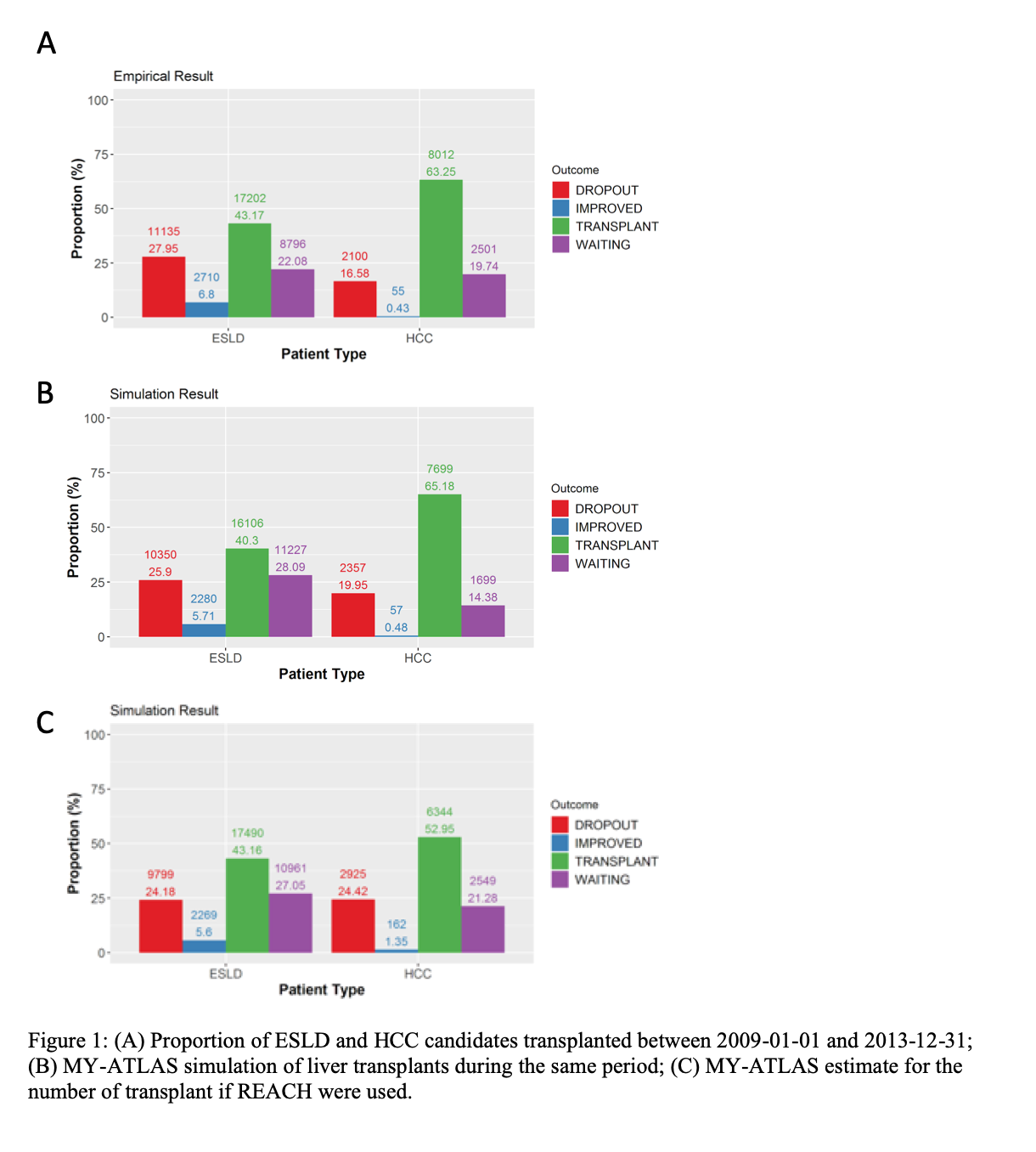MY-ATLAS: A Novel Simulation Algorithm for Liver Transplant Allocation
1Surgery, Massachusetts General Hospital, Boston, MA, 2City University of Hong Kong, Hong Kong, China, 3Tepper School of Business, Carnegie Mellon University, Pittsburgh, PA
Meeting: 2020 American Transplant Congress
Abstract number: B-125
Keywords: Allocation, Donation, Liver
Session Information
Session Name: Poster Session B: Liver: MELD, Allocation and Donor Issues (DCD/ECD)
Session Type: Poster Session
Date: Saturday, May 30, 2020
Session Time: 3:15pm-4:00pm
 Presentation Time: 3:30pm-4:00pm
Presentation Time: 3:30pm-4:00pm
Location: Virtual
*Purpose: Currently, the primary tool for modeling expected outcomes from changes in allocation policy is the SRTR-run Liver Simulated Allocation Model (LSAM), which is neither freely available nor easily modifiable. Here, we present our initial work on a new open-source model, MY-ATLAS, for predicting the impact of policy changes in liver allocation.
*Methods: The eleven regions are simulated independently using SRTR data from a 5 year period (2009/01/01 – 2013/12/31). We assume a constant liver acceptance probability of 1%, meaning that although the highest match MELD patients have priority there is some randomness about which patient receives the liver. Both ESLD and HCC patients are used for the simulation. Outcomes are reported as the percentage and absolute number of candidates who dropout, continue waiting, are transplanted, or are listed as ‘improved.’
*Results: To validate the new MY-ATLAS model for allocation, actual allocation outcomes in the testing set (Fig. 1a) were compared to the simulated allocation totals (Fig. 1b) for ESLD and HCC candidates (Fig. 1b). Outcomes in both were quite similar (Fig. 1, b), with the overall difference between the predicted and actual number of total transplants being only 5.5% (Fig. 1a,b). MY-ATLAS was then used to simulate outcomes with our recently proposed REACH score, which assigns HCC points on a MELD scale, corresponding to the risk of dropout. MY-ATLAS predicts that application of REACH would equalize dropout rates between ESLD and HCC patients, increase the number of ESLD transplants, decrease the number of HCC transplants, and decrease total wait list deaths (Fig. 1c).
*Conclusions: Although MY-ATLAS does not yet include rational liver acceptance behavior, this new, open-source tool nevertheless predicted wait list total outcomes on a test set quite accurately. Because it is not possible to model tumor behavior in LSAM, we used MY-ATLAS to model implementation of REACH, and found that it has the intended effect of shifting transplants to the ESLD population REACH, and decreasing wait list deaths.
To cite this abstract in AMA style:
Rickert CG, Zhao H, Leung Z, Akan M, Markmann JF, Tayur S, Yeh H. MY-ATLAS: A Novel Simulation Algorithm for Liver Transplant Allocation [abstract]. Am J Transplant. 2020; 20 (suppl 3). https://atcmeetingabstracts.com/abstract/my-atlas-a-novel-simulation-algorithm-for-liver-transplant-allocation/. Accessed February 3, 2026.« Back to 2020 American Transplant Congress

